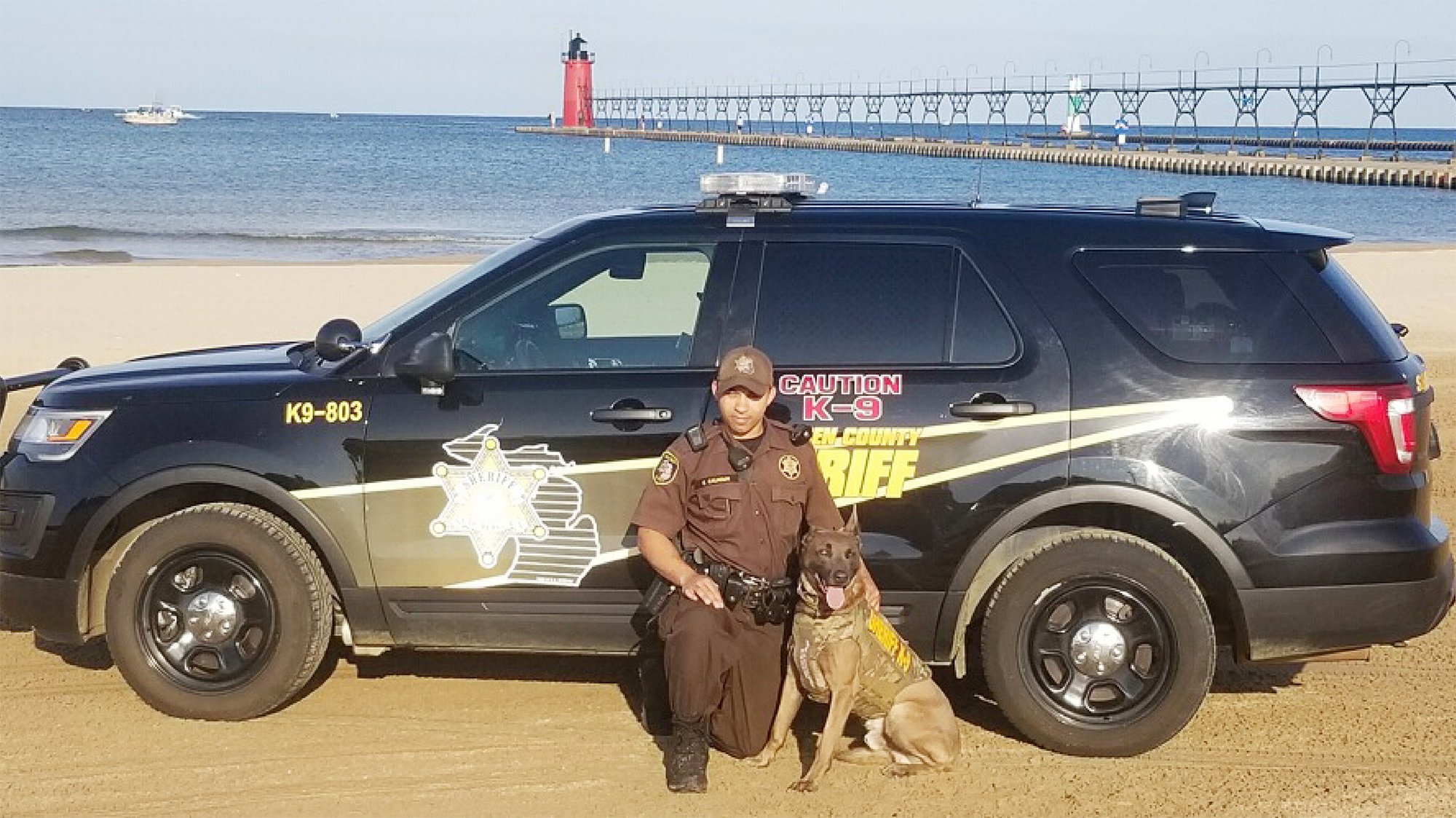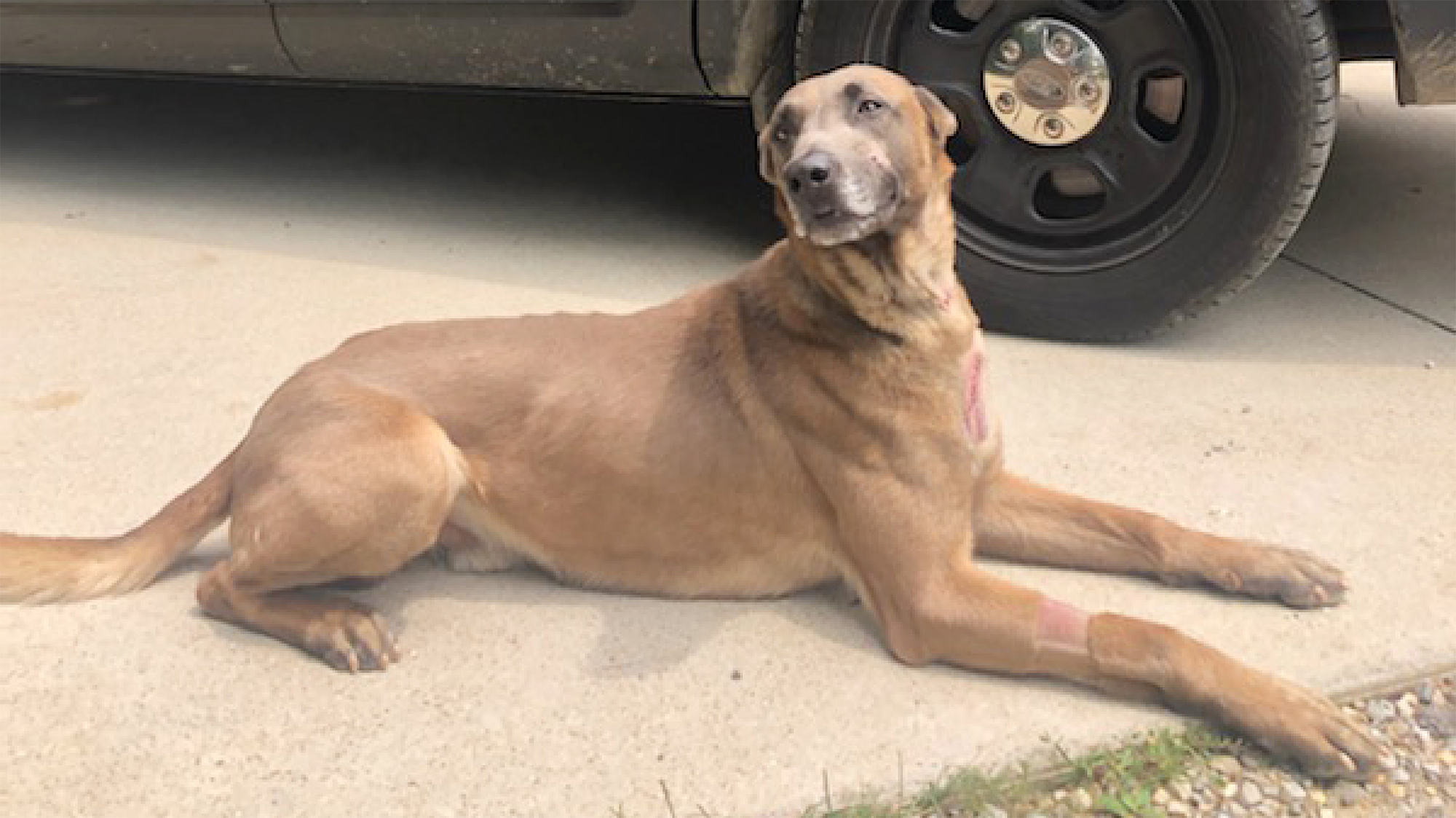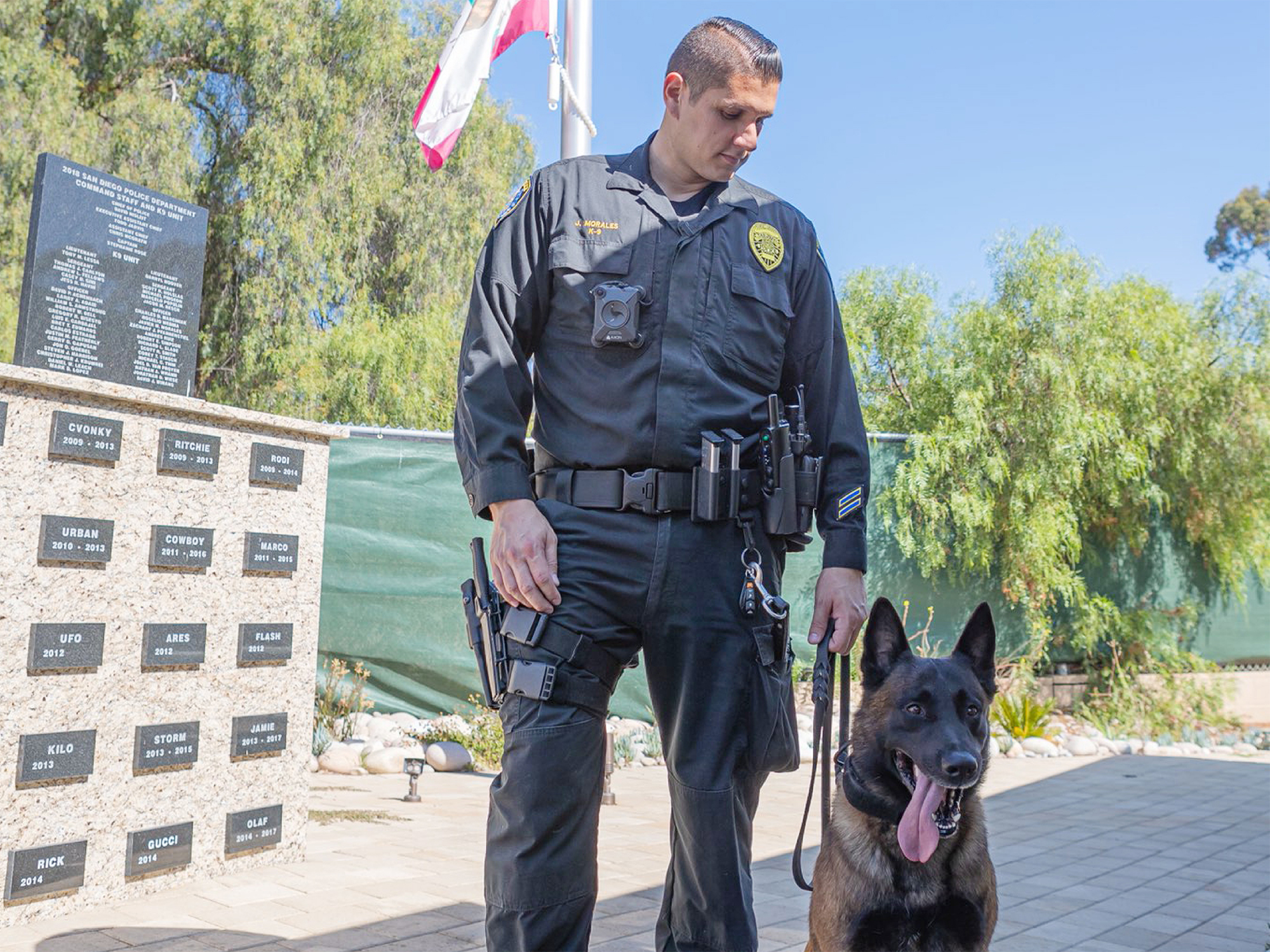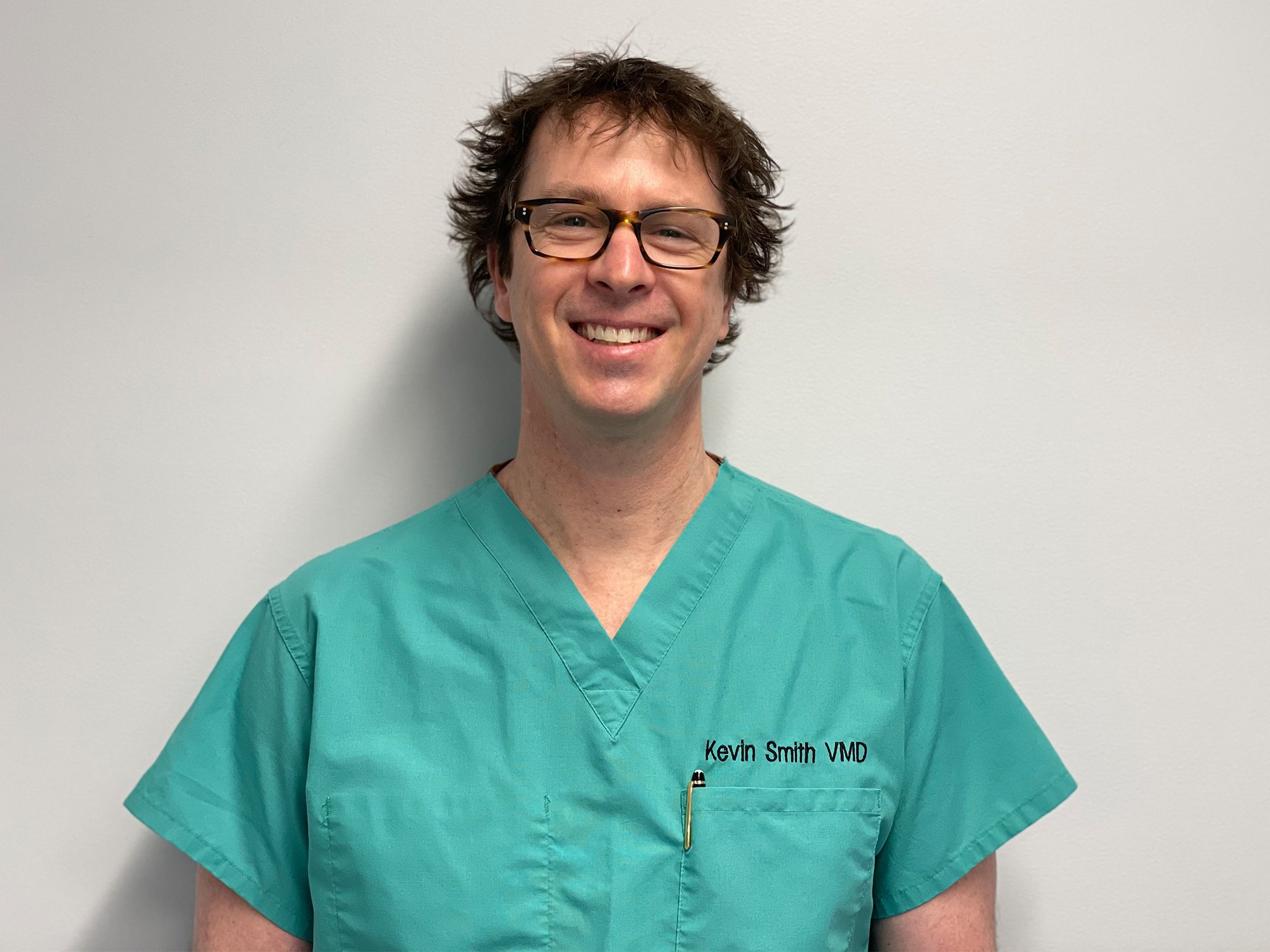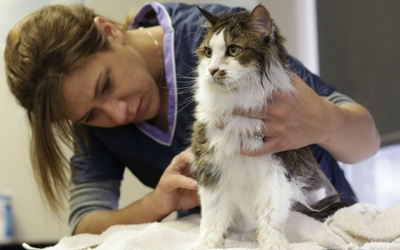On July 26, 2021, when Deputy Kuno with the Van Buren County Sheriff’s Office in Michigan was ordered to locate a suspect who was hiding during a search warrant, he moved in without hesitation. After quickly locating the suspect, Deputy Kuno was assaulted with a knife, resulting in multiple stab wounds. He showed remarkable bravery and calm as he was rushed to a hospital where his fellow deputies knew he would get the best care – VCA Specialty and Emergency Center of Kalamazoo (VCA VSECK).
Kuno, a five year-old Belgian Malinois, is one thousands of law enforcement K9s who risk their lives every day to help keep our communities safe. They go through countless hours of training and develop skills that only a dog can master, like sniffing out drugs and weapons. So when it comes to their medical care, law enforcement agencies expect the very best.
Injured in the Line of Duty
Since they have unique skills their human colleagues lack, K9s are indispensable members of the law enforcement team. Perhaps one of the most important and useful skills police dogs can be taught is apprehension. Police dogs are trained to “find the bad guy,” bite, and hold the suspect hostage until their human partners can reach them. Strong and intelligent, police dogs regularly put their lives on the line by being the first to go in against an armed suspect.
Such was the case when Kuno and his handler, Deputy Eric Calhoun, responded to a search warrant. The suspect was refusing to come out of the building and was hiding in a crawl space too confined for a human deputy.
“I gave the command and he went in, then it suddenly got very quiet,” recalls Deputy Calhoun. “Since he’s trained to fight through a struggle, I knew something was very wrong when he came back to us.”
The suspect was armed with a knife and stabbed Kuno three times. Since Deputy Calhoun had to stay at the scene, fellow handler Deputy Scott Schmitt took over Kuno’s care, rushing him to VCA VSECK.
“Human Level Treatment”
Multiple officers accompanied Kuno on his journey to the hospital, ready to step in if needed. Despite VCA VSECK being about 30 minutes from Gobles, MI where the incident happened, Sheriff Abbott made the decision to send Kuno there because of the hospital’s stellar reputation.
“I have heard nothing but good things about it,” he explains. “From the moment he arrived, Kuno was treated like a human patient. I knew they were doing everything they could to make sure he got the very best care.”
VCA VSECK is the most comprehensive advanced care veterinary facility serving Kalamazoo, MI and the surrounding communities. The hospital offers a board-certified small animal surgeon, extensive emergency and critical care services, and limited exotic animal care.
Being separated from Kuno was difficult for Deputy Calhoun, who had to stay at the scene.
“We’re constantly together – at home and at work – so I would compare it to someone’s child being injured, then not being able to go along to the hospital,” explains Deputy Calhoun. “I didn’t know the extent of his injuries, so although Deputy Schmitt called me as soon as he could, it was frustrating initially not knowing what was going on.”
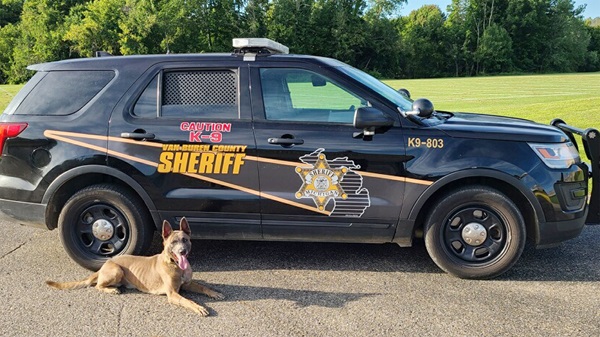
According to Elizabeth Brand, DVM, the emergency and critical care veterinarian at VCA VSECK who saved Kuno’s life, he was a model patient.
“Typically K9s don’t react well to strangers, and they behave the best for their handlers,” says Dr. Brand. “In Kuno’s case, a different handler had brought him in. But he was truly the best-behaved dog you could ask for in that situation. He was able to turn off job mode and accept treatment.”
According to Dr. Brand, Kuno was calm, confident and brave, which she attributes to his extensive training. He even rolled over and asked her for belly rubs – with three stab wounds on his body. The suspect had stabbed Kuno on his nose, his neck, and in the chest. The chest wound was the deepest, requiring extra evaluation to make sure no major organs had been damaged. But it was Kuno’s neck wound that could have killed him.
“The laceration was ½ centimeter away from his jugular,” recalls Dr. Brand. “So he’s very lucky – I placed stiches right above his jugular.”
Getting Back to Serving the Community
After spending the night in the hospital, Kuno was able to go home with Deputy Calhoun to recover. He says the most difficult part of recovery was keeping his playful, active dog calm while he healed. The pair went back to work in August, and Deputy Calhoun is easing Kuno back into work slowly. They devote a few hours a week to obedience training and practicing article and narcotic searches.
Sheriff Abbott is glad he made the decision to send Kuno to VCA VSECK.
“We can’t thank you enough for saving that dog,” he says. “We appreciate it more than you know.”
Deputy Calhoun says he was more than pleased with the care his K9 partner received.
“The amount of communication I got from the hospital and Dr. Brand was great,” he says. “They kept me updated and I wasn’t as worried since I knew he was getting top-notch care.”
Dr. Brand also credits Deputy Calhoun and his colleagues for Kuno’s remarkable recovery.
“It’s really a team approach to K9 care,” she explains. “The handlers are always on board for whatever treatment is necessary and want what’s best for the dog. So they do exactly what we ask of them to make sure the dog heals properly at home.”
VCA Animal Hospitals proudly partners with over 90 K9 units across the country, providing both routine and life-saving emergency care to working dogs like Kuno who help keep us safe.
““We can’t thank you enough for saving that dog,” Sheriff Abbott says. “We appreciate it more than you know.” ”


